This article was medically reviewed by Mark Ziats, MD, PhD. Dr. Mark Ziats is an Internal Medicine Physician, Scientist, Entrepreneur, and the Medical Director of xBiotech. With over five years of experience, he specializes in biotechnology, genomics, and medical devices. He earned a Doctor of Medicine degree from Baylor College of Medicine, a Ph.D. in Genetics from the University of Cambridge, and a BS in Biochemistry and Chemistry from Clemson University. He also completed the INNoVATE Program in Biotechnology Entrepreneurship at The Johns Hopkins University - Carey Business School. Dr. Ziats is board certified by the American Board of Internal Medicine.
There are 13 references cited in this article, which can be found at the bottom of the page.
This article has been viewed 31,919 times.
Hand, foot, and mouth disease is most common in young children, and it is caused by the coxsackie virus, which is highly contagious. Hand, foot, and mouth disease causes a rash that is very characteristic The rash is on the palms of the hands and soles of the feet and in the mouth. The disease only lasts for about a week, but during this time you may also experience a fever, sore throat, and cold-like symptoms.[1] There is no cure for hand, foot, and mouth disease, but there are some things that you can do at home to support your recovery.
Steps
Relieving Pain
-
1Take an over-the-counter pain reliever. To deal with the pain caused by sores on your hands, feet, and mouth, you may also want to take an over-the-counter pain reliever such as ibuprofen or acetaminophen.[2]
- Check with your doctor if you are not sure how much to take or how much to give your child.
- Make sure that you check the package instructions as well and follow them carefully.
- Do not give aspirin to children because it can cause a rare, but life-threatening condition called Reye's syndrome.[3]
-
2Use a topical pain reliever. A pain relieving gel may also help to make sores on your mouth a bit more bearable. Look for a topical pain relieving gel that is safe to use on your mouth and follow the package instructions for use.[4]Advertisement
-
3Dab chamomile on sores. Chamomile tea has soothing and antiviral properties, so it may help to support healing of the sores caused by hand, foot, and mouth disease. To use chamomile tea, brew a cup of chamomile tea and allow it to cool down to room temperature. Then dip a cotton ball into the tea and use the cotton ball to dab a bit of tea on you sores.[5]
- You can also use elderberry juice or tea, which may be a better option for kids because of the flavor. Elderberry also has antiviral properties.
-
4Gargle with warm saltwater. Gargling with some warm, salty water a few times per day may also help to relieve the pain caused by sores in your mouth and throat.[6] Heat up some water so that it is warm but not hot. Then, add a teaspoon of sea salt to the water and stir the water until the salt has fully dissolved. Swish a mouthful of this water for about 30 seconds. Repeat throughout the day to help with pain.
Supporting Recovery
-
1Stay hydrated. It is important to stay hydrated while you are dealing with hand, foot, and mouth disease, especially if you have a fever. Drink eight 8 ounce glasses of water per day and drink more if you still feel thirsty.[7]
- Cool water is best because it will hydrate you and help numb the sores a bit. You may also want to include some popsicles and a bowl of ice cream each day.
- Call your doctor if you are having trouble drinking or holding down fluids. If you are treating a child with hand, foot, and mouth, make sure that your child is drinking plenty of fluids.
-
2Eat bland food. Any foods that are spicy, salty, or acidic may irritate your sores and cause the pain to feel worse, so it is best to avoid these foods until you recover. For example, you could eat some oatmeal and applesauce, warm chicken broth with some plain brown rice, or a smoothie made with milk, a frozen banana, and a spoonful of peanut butter.[8]
- Try rinsing out your mouth with a bit of warm water after you eat to get rid of any food residue that may irritate the sores.
- Call your doctor if the sores make it too painful to eat.
-
3Get plenty of rest. As with any illness, getting plenty of rest is essential for recovery from hand, foot, and mouth disease.[9] Your body needs rest in order to fight off the disease and repair your tissues. Make sure that you are getting at least eight hours of sleep every night.
Preventing the Disease from Spreading
-
1Wash your hands often. Hand, foot, and mouth disease is contagious, so it is important to wash your hands often. Make sure that everyone in your household knows to do the same. Frequent hand washing can help to prevent the spread of hand, foot, and mouth disease.[10]
-
2Stay home from school or work. You may need to take some time off from work or school if you have hand, foot, and mouth disease. When you have hand, foot, and mouth, disease you are contagious and being around others puts them at risk of catching the disease as well.[11]
-
3Avoid touching or kissing people. Although it may be hard to avoid all physical contact with people for the duration of your illness, it is important to avoid kissing people or touching them with your hands while you are ill. By kissing and touching someone, you will put them at risk of contracting this disease.[12]
- Do not share utensils, lip products, water bottles, or any other items that have come into contact with your mouth.[13] If you do touch someone's coxsackie rash, then wash your hands right away.
-
4Clean soiled surfaces right away. To prevent members of your household from becoming infected by touching soiled surfaces, clean any surfaces that become soiled.[14] For example, if one of your sores leaks a bit of fluid as you are turning a doorknob, use a disinfectant spray and a paper towel to clean the doorknob right away.
-
5Keep children home from school and/or daycare. Children and infants with the disease should not go to school while they are contagious. This means that if your child or infant has hand, foot, and mouth disease, then you will need to keep him or her home from school and/or daycare until the symptoms clear up, probably for about three to five days. However, it may take up to 10 days for signs of the disease to clear up.[15]
Warnings
- See a doctor if you experience any trouble eating, drinking, or carrying out other daily activities due to the painful sores.⧼thumbs_response⧽
- If your child or infant develops neurological symptoms along with a coxsackie virus rash, then take your child to the emergency room. These symptoms may include confusion, lethargy, back pain, or stiff neck with fever, and could indicate a serious condition such as viral meningitis or encephalitis.[16]⧼thumbs_response⧽
References
- ↑ https://www.cdc.gov/hand-foot-mouth/about/signs-symptoms.html
- ↑ https://my.clevelandclinic.org/health/diseases/11129-hand-foot-and-mouth-disease
- ↑ https://my.clevelandclinic.org/health/articles/6088-reyes-syndrome
- ↑ https://emedicine.medscape.com/article/802260-medication
- ↑ https://www.ncbi.nlm.nih.gov/pmc/articles/PMC2995283/
- ↑ https://www.pennmedicine.org/updates/blogs/health-and-wellness/2018/february/sore-throat
- ↑ https://www.nhs.uk/conditions/hand-foot-mouth-disease/
- ↑ https://caringforkids.cps.ca/handouts/health-conditions-and-treatments/hand_foot_and_mouth_disease
- ↑ https://myhealth.alberta.ca/Health/aftercareinformation/pages/conditions.aspx?hwid=uh3650
- ↑ https://www.cdc.gov/hand-foot-mouth/about/prevention.html
- ↑ https://www.cdc.gov/hand-foot-mouth/about/prevention.html
- ↑ https://www.aad.org/public/diseases/a-z/hand-foot-mouth-self-care
- ↑ https://www.healthychildren.org/English/health-issues/conditions/infections/Pages/Hand-Foot-and-Mouth-Disease.aspx
- ↑ https://www.aad.org/public/diseases/a-z/hand-foot-mouth-self-care
- ↑ https://www.cdc.gov/hand-foot-mouth/about/prevention.html
- ↑ http://www.cdc.gov/hand-foot-mouth/about/complications.html
About This Article
To treat hand, foot, and mouth disease, use over-the-counter medications like ibuprofen, acetaminophen, and topical gel to deal with discomfort and pain. Be sure to stay hydrated by drinking plenty of fluids, especially if you have fever, and eat bland foods so you won't irritate your mouth sores. It's also important to get plenty of rest, wash your hands often, and stay home from school and work, since this illness is very contagious. For more tips on preventing the disease from spreading, read on!

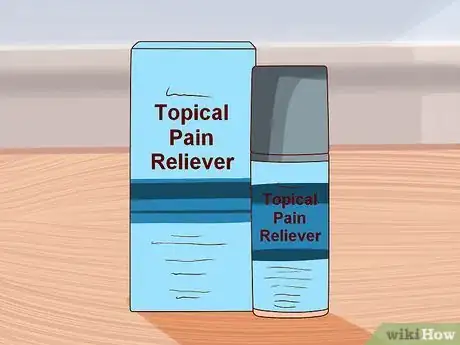
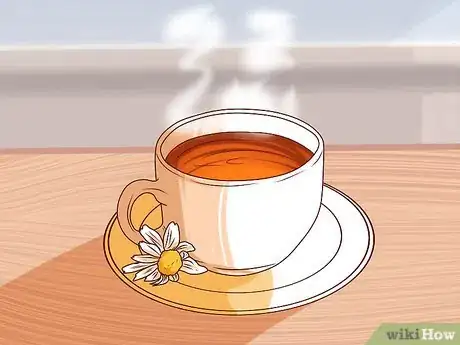

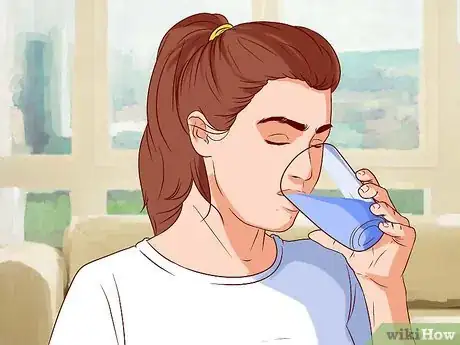
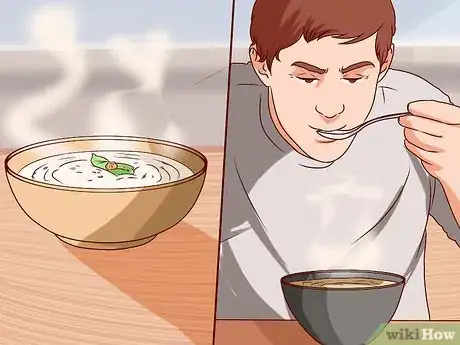
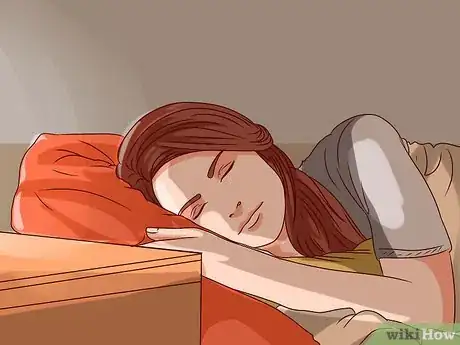
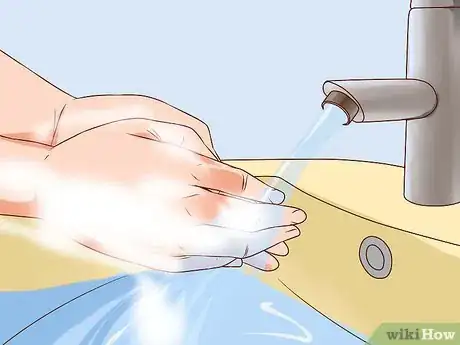
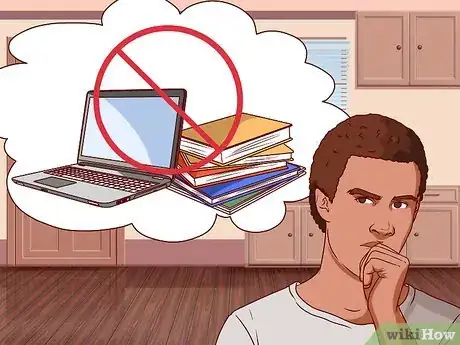

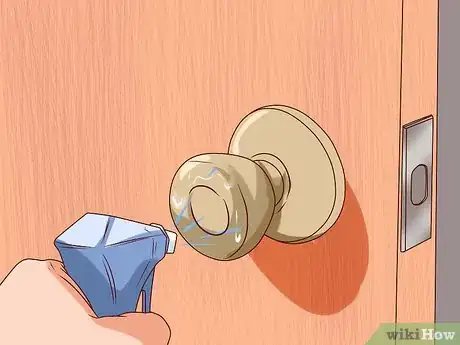
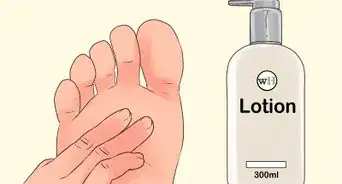
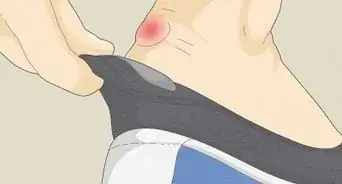
-Step-11-Version-2.webp)

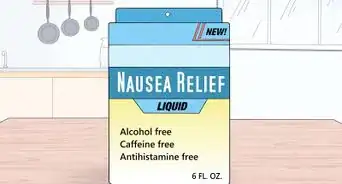



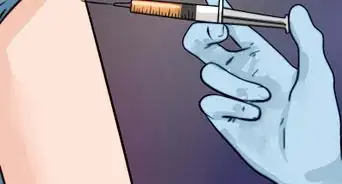
-Step-13.webp)
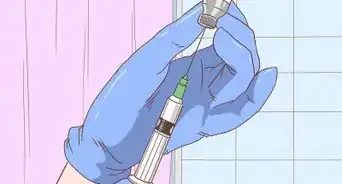
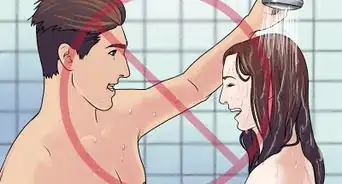








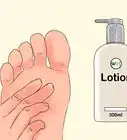
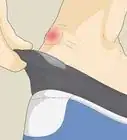
-Step-11-Version-2.webp)




































Medical Disclaimer
The content of this article is not intended to be a substitute for professional medical advice, examination, diagnosis, or treatment. You should always contact your doctor or other qualified healthcare professional before starting, changing, or stopping any kind of health treatment.
Read More...